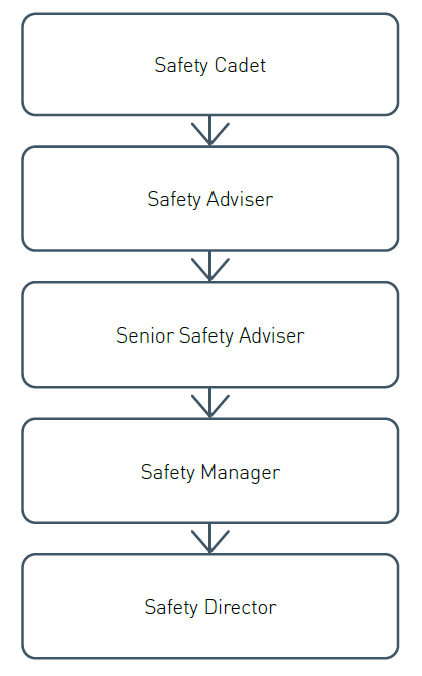Career Profile: Safety Adviser
View this page as a PDF, 256.6 KB
Steer your career towards the rail industry with one of these rewarding possibilities.
What is a Safety Adviser?
A Safety Adviser role is diverse and interesting with no two days or weeks looking the same. A Safety Advisers purpose is to help ensure everyone has a healthy workplace to keep them safe on the job and to care for everyone around the workplace, including the public community.
What might a Safety Adviser do?
A typical day would start around 7am for a pre-start safety meeting, with a site safety walk and induction for those working on the site. Along with the Safety Adviser and Site Foreman they’re responsible for assisting in checking plant machinery, developing safety alerts, and conducting other safety inspections that are needed.
A typical day would start around 7am for a pre-start safety meeting, with a site safety walk and induction for those working on the site. Along with
a Safety Cadet and the Site Foreman they’re responsible for checking plant machinery, developing safety alerts, and conducting other safety inspections that are needed.
Other tasks may include:
- Updating the project’s Health and Safety policies and procedures
- Investigate any incidents to establish the cause and contributing factors
- Ensure appropriate follow up and prevention happens for any incidents
- Develop safety toolboxes
Who might it suit?
A Safety Adviser is someone who can prioritise, has strong communication skills and is able to easily build relationships with people from a range
of different backgrounds. They have a strong interest in problem solving and show genuine care for those round them.
What qualifications do I need?
A Safety Adviser will start their career as a Safety Cadet. A Cadet will typically have undertaken an accredited Certificate IV in Work Health and Safety with the option to undertake further study and continue with a Diploma in Work Health and Safety. Some organisations hire Safety Trainees, where they would be sponsored to complete the Certificate IV by the employer or a Group Training Organisation alongside learning on the job. Alternatively, they can undertake a Bachelor of Occupational Health and Safety, Bachelor of Health Science or equivalent as a university pathway into a Safety Cadet role.
For the first six to twelve months as a Safety Cadet, there is a strong focus on administrative tasks and hands on learning experiences to become familiar with the policies and procedures that underpin Workplace Health and Safety.
Where and when is the work?
This role would be based in an onsite at a construction site. Being onsite makes it easier to build relationships, while also being available should any
incidents occur. Hours of work will typically align to the site’s work hours - early starts are the norm. Occasional weekend or shift work may be required,
but days of work are usually Monday to Friday.
What is the pay?
In 2022 a Safety Adviser salary started around $100,000 per annum but this may vary between organisation and location.
Career pathway opportunities
There are many career pathways that a Safety Adviser may take. Below is one example of the typical career path someone working in safety might follow.
Career path opportunities

